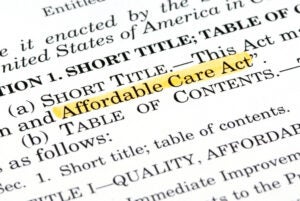Tag: rising costs
May Research Roundup: What We’re Reading

April showers bring May flowers, and May was abloom with health policy research. Last month, we read about the impact of ending pandemic-related coverage policies, consumer awareness of the resumption of Medicaid renewals, and approaches to tackling rising health care costs in commercial health insurance markets.
February Research Roundup: What We’re Reading

Along with “Health Policy Valentines,” February brought a host of new health policy research. This month, we read about trends in medical and pharmacy spending, the relationship between health systems’ financial performance and amounts paid by commercial plans, and mental health provider network adequacy.
Can Employer-Sponsored Insurance Be Saved? A Review of Policy Options: Limiting Provider Consolidation and Anti-Competitive Behavior

High and rising health care prices are a key driver of increased cost sharing in employer plans. A significant contributor to rising prices is the consolidation in health care provider markets. In the third post of a series on policy options to improve the affordability of employer-sponsored insurance, CHIR’s Maanasa Kona and Sabrina Corlette explore strategies to limit provider consolidation and anti-competitive behavior.
Understanding the Role of Private Equity in the Health Care Sector

As private equity involvement in the health care industry increases, policymakers and other stakeholders are sounding the alarm and calling for better regulation to control costs and protect patients. CHIR’s Maanasa Kona takes a look at the role of private equity in the health care sector and how it impacts consumers.
Adoption of Value-Based, Alternative Payment Models: Where Are We Today and Where Do We Go from Here?

Employer-sponsored health insurance costs had their highest annual increase since 2010 last year, and some experts are projecting additional health spending increases in 2022. Research has found that provider prices are the leading cause of high and rising health care spending in the US, and many policy experts have advocated for moving towards value-based, alternative payment models (APMs). CHIR’s Maanasa Kona takes a look how APMs have performed thus far and what the future may hold.
Aggressive Medical Debt Collections: COVID-related Consumer Protections Could be a Model for Long-term Relief

A new investigative report shows that even the COVID-19 crisis has not stopped many hospital systems from using aggressive collections practices to collect on unpaid medical debt. CHIR’s Maanasa Kona takes a deep dive into the problem of medical debt and aggressive collections practices, and how the government can step in to protect consumers.
Insurers Report on Their Q3 Financial Earnings: Marketplace Profitability, Retail Partnerships, and More

Last month, health insurers reported on their third-quarter (Q3) financial earnings, offering insights on their yearly performance to date and commenting on the market and regulatory challenges they see ahead. CHIR reviewed the quarterly filings and earnings call transcripts for seven publicly traded health insurers, and found that many continue to experience financial stability in the individual market and are closely monitoring major policy changes that could have an impact on their businesses moving forward.


